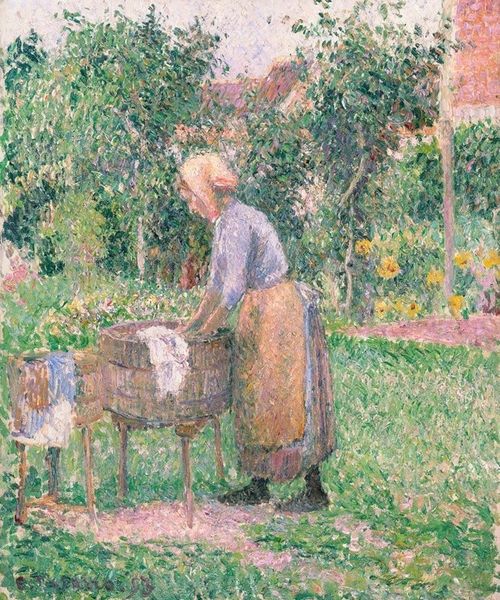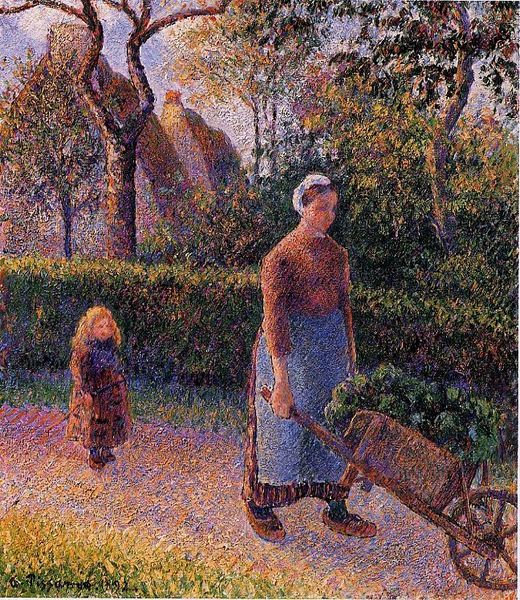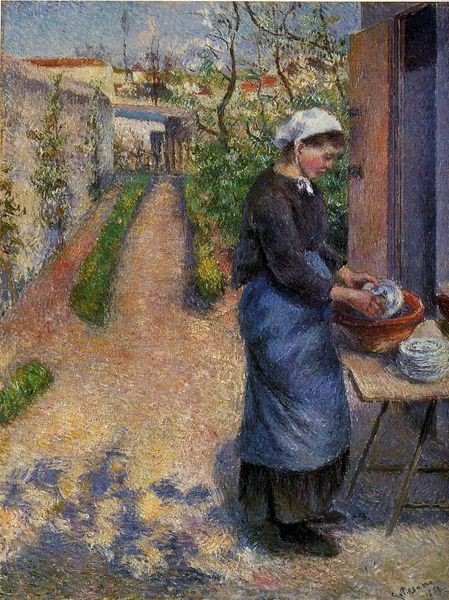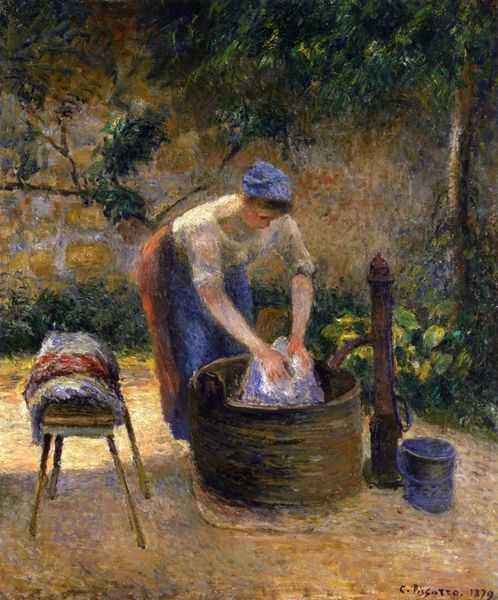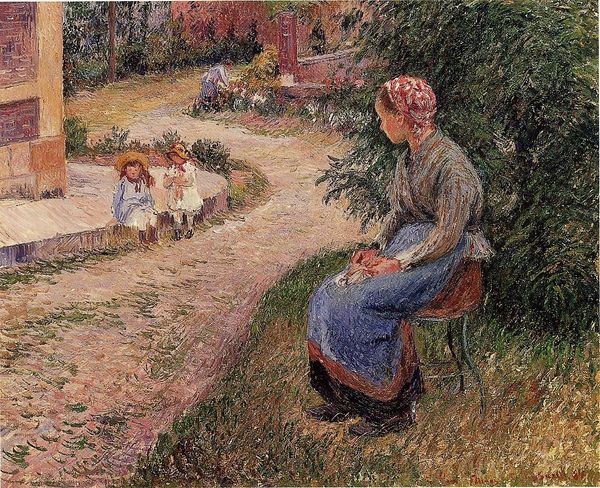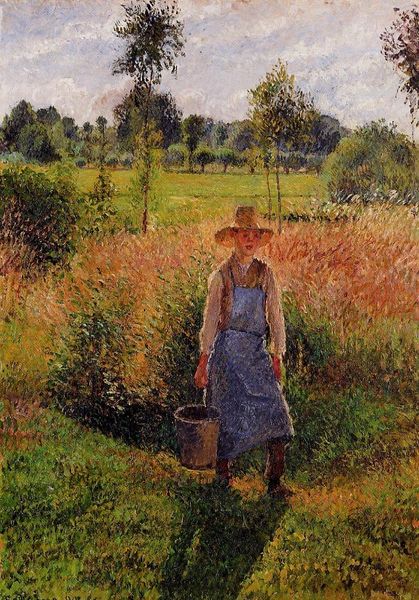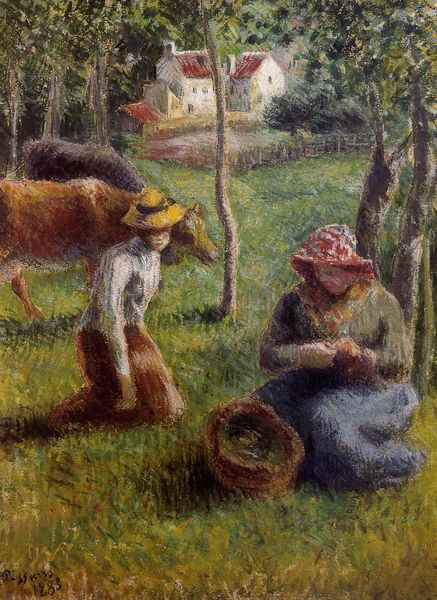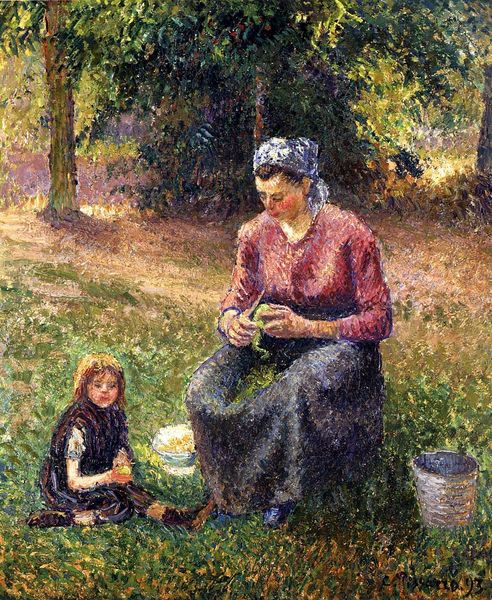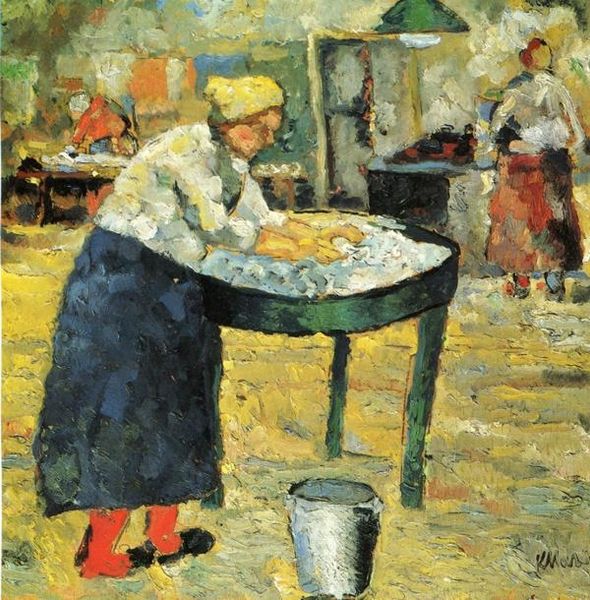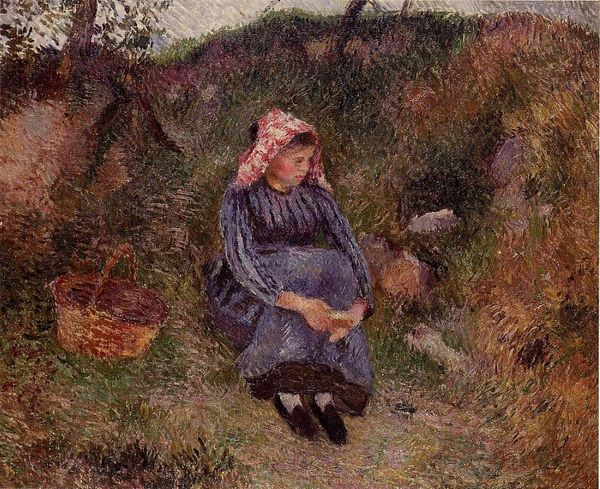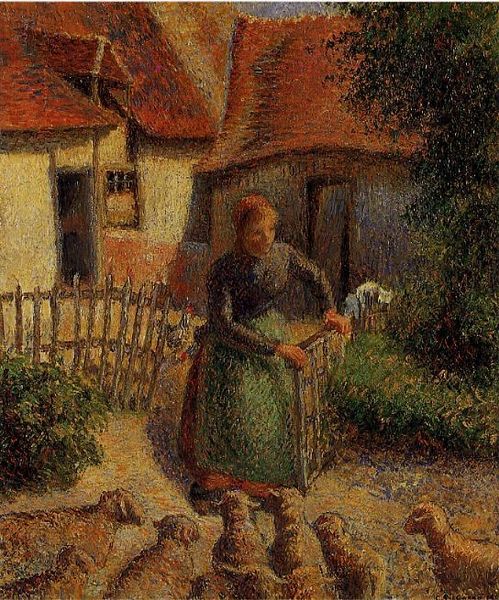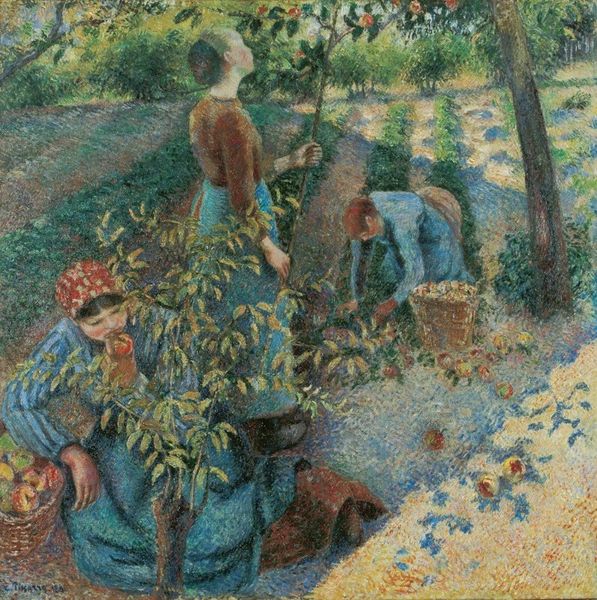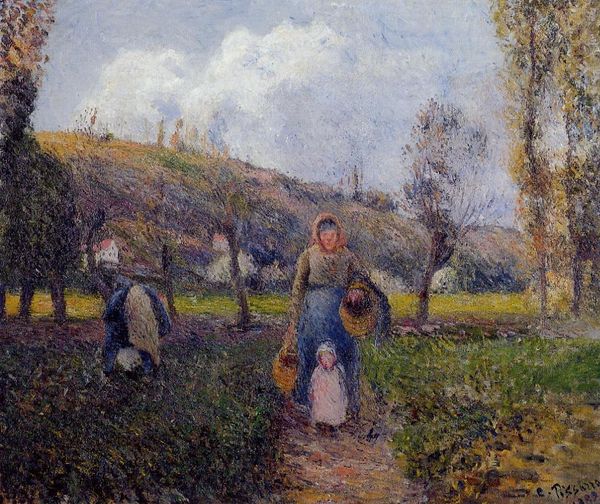
#
abstract painting
#
impressionist landscape
#
possibly oil pastel
#
handmade artwork painting
#
oil painting
#
fluid art
#
acrylic on canvas
#
naive art
#
france
#
painting painterly
#
watercolor
Copyright: Public domain
Camille Pissarro made this painting, Washerwoman, Eragny, around 1887 with oil on canvas. At first glance, one is struck by the painting's dappled surface, a mosaic of short brushstrokes in myriad hues that coalesce to depict a domestic scene. This optical mixing of color creates a vibrant, sun-drenched atmosphere. Pissarro, a key figure in the Impressionist movement, was deeply engaged with the formal qualities of painting and scientific theories of color and perception. The composition is structured around a central figure—a washerwoman—whose form is built up through juxtapositions of color rather than traditional modeling. The lack of strong tonal contrasts flattens the pictorial space, emphasizing the two-dimensionality of the canvas. Moreover, Pissarro's commitment to depicting the everyday lives of rural laborers elevates the status of those often unseen. The loose brushwork mirrors the transient nature of modern life, capturing a fleeting moment in time. The painting invites us to reconsider our understanding of form, representation, and the value we place on the mundane aspects of existence.
Comments
No comments
Be the first to comment and join the conversation on the ultimate creative platform.
